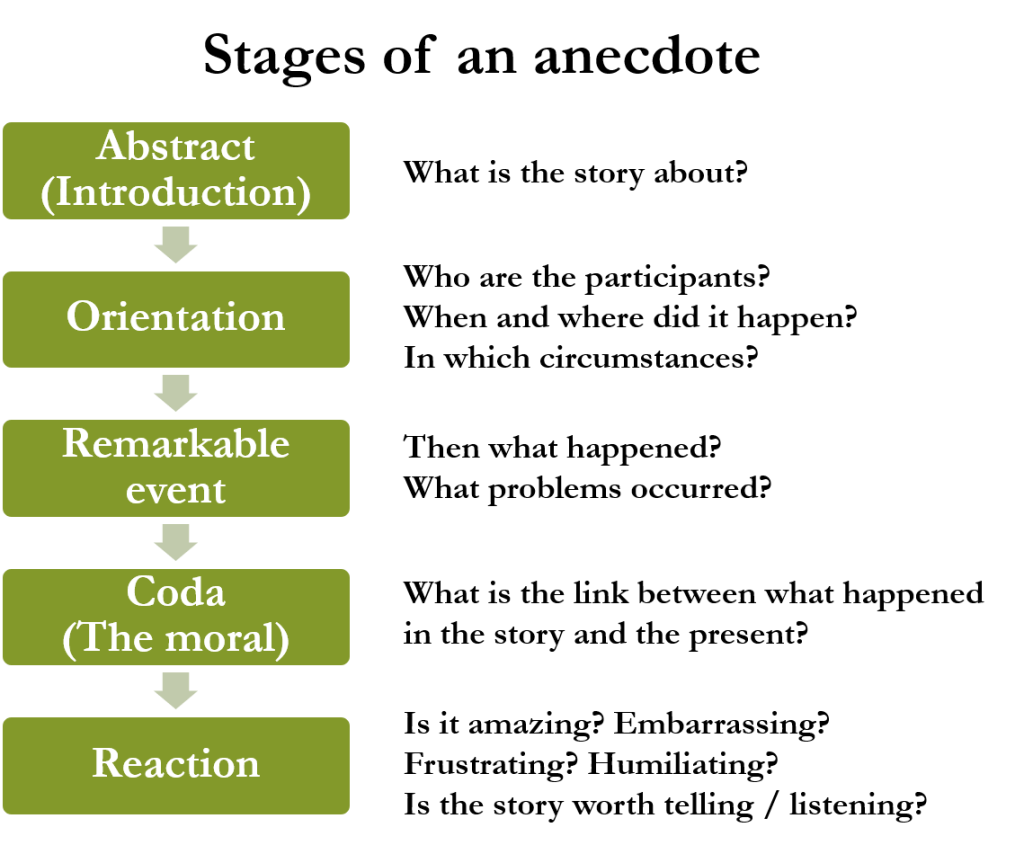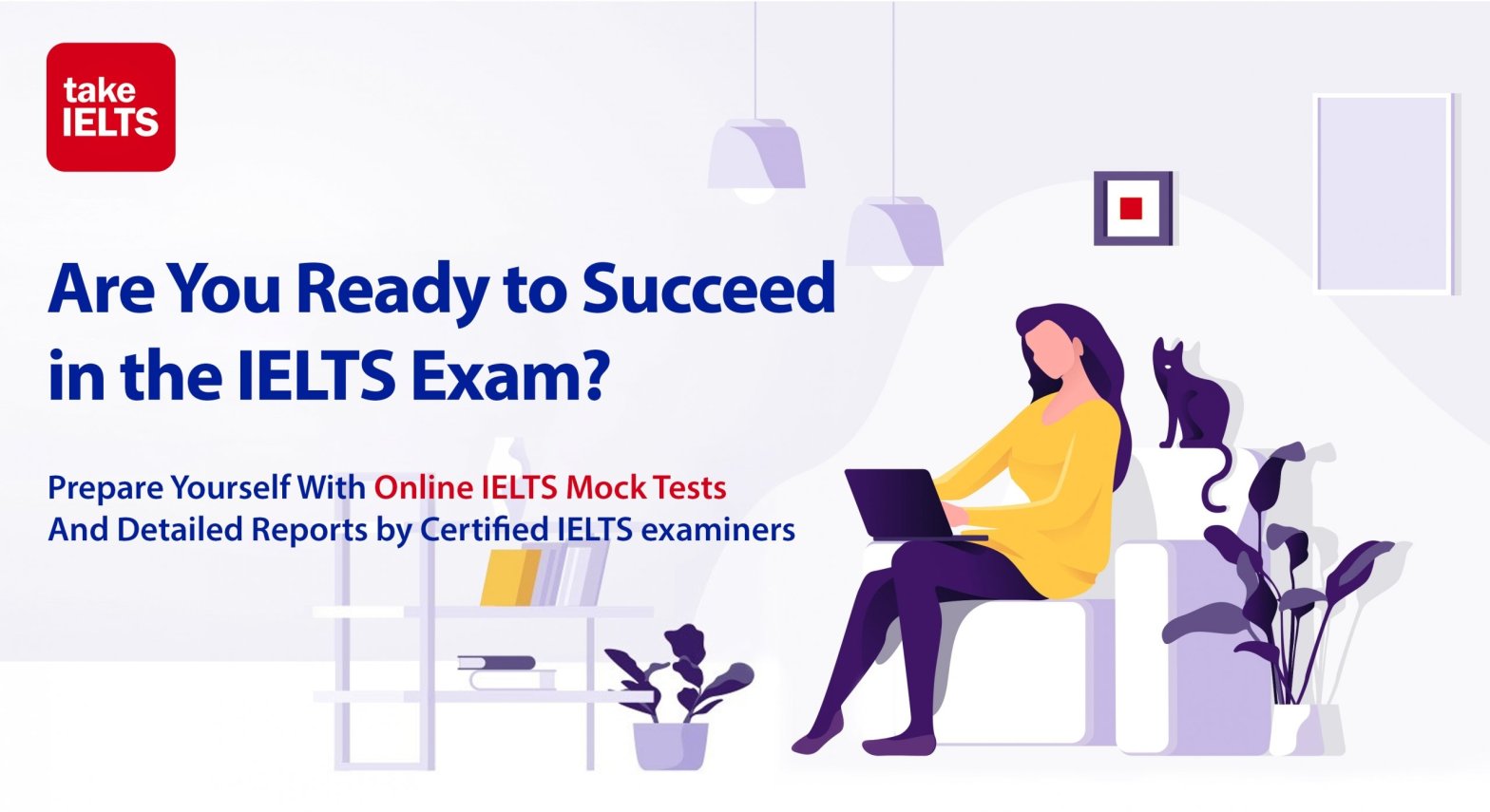
In episode 8 of my podcast, I spoke about how it is a wonderful social skill to master. The Cambridge Dictionary defines an anecdote as “a short, often funny story, especially about something someone has done.” In spoken discourse, experts group it with other forms of narratives, such as stories or jokes, and refers to it as “a highly regarded talent, probably in all cultures.” As it occurs in all forms of narratives, the staging of this storytelling genre can be summarized as follows:

The abstract and the coda may not be present in all anecdotes and the reaction (also called “evaluation”) may occur at any stage. However, the rest of the elements must be included for it to be a real story. The constituents of an anecdote do not necessarily have to follow this predetermined order either. What’s more, the story can involve and overlap in different layers of orientation or complicating events, which may depend on how simple or intricate the story is, or how acquainted the listeners are with the background information necessary to evaluate it. Experts, Eggins and Slade, even suggest that anecdotes need no clear resolution; it is a reaction from listeners (e.g. amazement, frustration, embarrassment, or humiliation) what the teller is after.
I used the example of Will Smith when he was invited to the Graham Norton Show and told the story of how he started writing his music. Here’s the video version (with subtitles), to listen to the analysis, you must download or play episode 8.
Useful vocabulary
Abstract
- Did I ever tell you about the time I…?
- Have I ever mentioned the time when I…?
- I’ll never forget the time I…?
- Funny you should say that. Have I told you about the time I…?
- Talking about / of …, that reminds me of the time I …?
Orientation
- It happened when I was (about) 16…
- It’s quite a few years ago now
- I was on my way to (place) to (verb)… , when…
- Do you know (person or place)? Well, we were…
- I’m not sure if you know… but it’s…
Remarkable (or complicating) event
- At that moment…
- She came into my room and then…
- My dad found my diary and…
- For some reason, I…
- And he was like, “move out!”
- And the strangest thing / funniest thing / best thing / worst thing was…..
Coda
- To make the long story short,…
- That’s why I always/never…
- And from the moment on, I always (never)…
Reaction (or Evaluation)
- That’s amazing! / That’s lovely! / That’s awful!
- I felt so (embarrassed/humiliated)
Send your recording! Tell me an anecdote!


